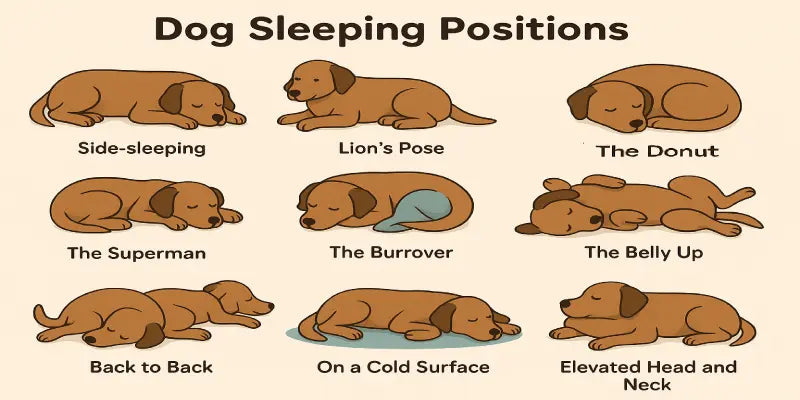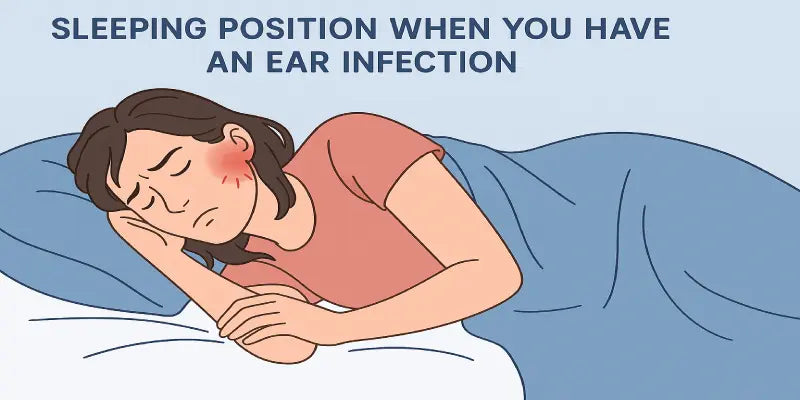
How to Calm Your Racing Mind to Get Better Sleep
You had a really busy day; you are tired, your body yawning for sleep and you just want to go to sleep. By this time, you should be asleep but your mind is racing. You’re mentally reviewing the day you just completed or it could be anything.
We've all been there! It's frustrating when you just want to rest, but your brain won't cooperate. In this blog, we’ll learn some simple techniques to calm your racing mind and improve your sleep:
Techniques to Calm Racing Mind to Get Better Sleep
Here are techniques to calm your racing mind to get better sleep:
1. Create a Bedtime Routine
Start preparing your body and mind at least half an hour before bed to sleep, you can unwind with a book, listen to some soothing music, take a warm bath, or practice relaxation exercises. If you do this consistently, your body will learn to anticipate sleep following that period of relaxation.
The common belief is that sleeping is automatic, much like breathing. False. Modern life has provided so much stimulation during the day that brains now run at warp speed, and if you don't give your time to rest, it will continue to function at that speed at sleep. Thus, establish a regular nighttime routine to help your body recognize when it's time to sleep.
2. Write Down Your Thoughts
We all go through so many different things during the day, and these things can stick in our minds. It could be hard to fall asleep with so many things going inside our mind. Every day, try to spend at least 10 to 15 minutes putting down all of your thoughts onto paper. It's a therapeutic way to realize that you probably just have a few recurring issues rather than a lot to worry about. The concerns that are hypothetical or "real" can then be seen.
Keeping a journal can be very helpful as a purposeful place to express both positive and negative emotions. That means that before going to bed, if you find that your mind is racing with unfavorable ideas, try writing them down.
3. Limit Screen Time Before Bed
Your phone is probably what you'll reach for first if you can’t fall asleep while lying in bed. This habit of yours can make it hard for you to get quality sleep fast at night. Set aside the final 30 to 60 minutes of the day before bed to unplug. To do this, put down the phone, switch off the TV, and stay away from electronics that emit blue light.
Due to their stimulating nature and the way their blue light interacts with our melatonin, the hormone that promotes sleep, these devices are known to steal sleep. Instead of consuming too much screen time right before bed, consider reading a book in person, relaxing to music, or engaging in a quiet conversation with a loved one.
4. Practice Deep Breathing
Deep breathing is a very simple yet powerful technique to relax your mind and body. If you're laying in bed for too long now, and sleep is nowhere near around you, you can try doing deep breathing followed by counting.
Try taking a deep inhale via your nose for four counts, holding it for another four, and then gently letting go through your mouth for six counts. Repeat this a few times to help you become more at ease. Pay close attention to your breathing and counting, and if your thoughts stray, simply acknowledge it and bring your focus back to the activity. This could take you five minutes or more.
5. Create a Restful Environment
Even if your bed feels comfortable but the environment around is not right, there are high chances of you having sleep problems. Try to keep your bedroom calm, dark, and cold. Invest in pillows and bedding that are cozy and promote proper sleeping position.
To make your environment comfortable, try using a fan, earplugs, room-darkening curtains, or other gadgets. You can get better sleep by engaging in relaxing activities before bed, such as taking a bath or practicing relaxation techniques.
6. Limit Caffeine and Stimulants
Coffee can give you instant energy, it is not recommended for sleep. It can be difficult for your thoughts to relax close to bedtime if you take caffeine or other stimulants. It is advised that you abstain from using any of these substances after dark. Coffee is okay in moderation throughout the first part of the day, but try to stay away from it in the afternoon as it can interfere with your ability to fall asleep.
7. Exercise Regularly
Doing some physical activity regularly can help tire your body out so that you can fall asleep faster. If you are someone, thinking of starting regular exercise, start with light workouts. Avoid vigorous exercise right before bed, as it can have the opposite effect.
8. Lower Your Heart Rate
The majority of people are unaware that a heart rate of 60 or lower is necessary to induce unconsciousness. Your heart rate is substantially higher when your mind is racing. Anxiety brought on by these thoughts causes cortisol to be released, which makes it harder to fall asleep.
Before going to bed, you might have practiced deep muscular relaxation or the 4-7-8 breathing technique. Try them again now; the idea is to distract yourself from your thoughts and reduce your pulse rate at the same time.
Conclusion
Racing mind can make it hard for you to fall asleep at night. Getting a good night's sleep is essential for overall health and well-being. By incorporating these techniques into your bedtime routine, you can calm your racing mind and improve the quality of your sleep. Remember, consistency is key, so give these strategies time to work and find what works best for you.
One more thing you can add to your bedroom is a good quality pillow. Memory Foam Pillow is the most recommended one if you face difficulty sleeping. Memory foam has this amazing feature that it molds according to the shape of your head and neck, it evenly distributes weight and relieves pressure. If you are someone suffering from back and neck pain, it will provide you the much needed support.








